
Dilworth Becomes First VP for Gender Equality at OIST
In her new position, Dilworth aims to increase the representation and advancement of women at all levels in the university and to create a work environment free of gender-based biases.

In her new position, Dilworth aims to increase the representation and advancement of women at all levels in the university and to create a work environment free of gender-based biases.

Summer intern Tawni Middleton grew up on a hay farm in Colorado and plans to make her way back to the fields, by way of a career in plant biotechnology.

BTI officially unveils new state-of-the art facility for bioinformatics project.

Becky Sims will coordinate the teacher training institutes, develop and ship plant science experiment kits to classrooms nationwide and provide support for the Tompkins Cortland Community College biology courses taught at BTI.

Professor Emeritus Alan Renwick attended the groundbreaking ceremony and spoke with the developer about the original BTI building’s history in Yonkers.

Professor James Giovannoni, “There’s a great deal of diversity that’s still available from these varieties that potentially have a lot of useful traits, including tolerance to stresses and important fruit traits.”
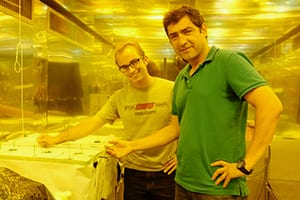
Summer internships at BTI let students try on the life of a scientist for a few months, while attending a variety of talks, trainings and social events. But what’s in it for the mentors, who painstakingly train them?
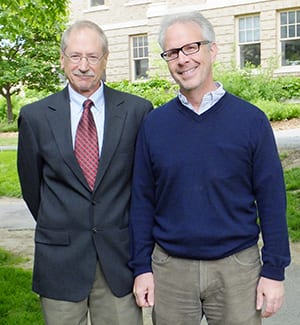
“The more we understand the molecular mechanisms involved in the infection process and in plant resistance, the more effective we’re going to be in breeding resistant crops,” said Professor Greg Martin.

A diverse group of researchers has teamed up to develop a therapeutic treatment for citrus greening disease, a bacterial infection that threatens the future of the U.S. citrus industry.

BTI welcomed three new Board members in May 2015; John W. Townsend, Alan Collmer, and Susan Brown.

Some interns, like Cornell University first-year student Felix Fernandez-Penny, enjoy their time at BTI so much that they keep showing up at the laboratory, long after the summer ends.

BTI welcomes 20 college-level interns for 10 weeks of research in Plant Genome Research Program, the Bioinformatics Program or the Bioenergy Education Program.

Researchers discover the genetics behind high-yield cucumbers that bear all-female flowers by screening 115 genome sequences to find large chromosomal variations.

EPA has granted temporary approval of two genes from spinach to be used in citrus plants. “There is a critical need to go beyond citrus to find novel resistance genes that provide protection…”
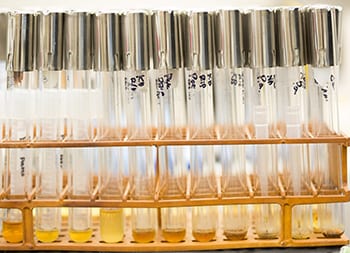
New research from the laboratory of BTI Professor Daniel Klessig finds that salicylic acid, or SA, plays a role in resistance to tomato bushy stunt virus or TBSV by blocking viral replication.

BTI Professor Emeritus Robert Kohut initiates competition at BTI to give early-career scientists an opportunity to communicate with the general public and practice their “elevator speech.”

A new compound could make rice more weed-resistant. Researchers in the Jander laboratory first discovered b-tyrosine while looking for new defense compounds in rice.

Marshall Tyler nominated Maria Harrison for the 2015 Cornell University College of Agriculture and Life Sciences Faculty Excellence in Undergraduate Research Mentoring Award.

BTI Professor Lukas Mueller will participate in an international collaboration to expedite crop breeding for five worldwide staple crops—wheat, rice, maize, sorghum and chickpea.

Postgraduate Society members at BTI host EYH (Expanding your Horizon) workshop to help girls understand genetics and feel more comfortable in the world of science.

BTI President and CEO David Stern visited Arizona April 14-16 to attend the Boyce Thompson Arboretum board meeting and to speak about algae-derived bioproducts and his own algal biofuel research, at Chandler-Gilbert Community College.

The discovery of the role of this ammonium transporter improves the understanding of how the plant and fungal partners regulate the symbiosis and how phosphate and nitrogen move through the system.

Professor Maria Harrison is the 2015 winner of the Dennis R. Hoagland Award from the American Society of Plant Biologists, given every three years, for her outstanding work on plant mineral nutrition.

Research Associate Amber Hotto and colleagues, working in the laboratory of BTI President David Stern, have characterized the first RNase III enzymes that function within chloroplasts.

Klaus Apel’s work is a step in understanding how plants respond to stress…singlet oxygen doesn’t deserve its bad reputation for wrecking cells and killing the plant.
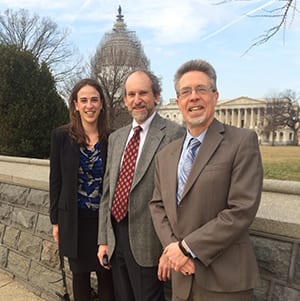
BTI President David Stern traveled to Washington D.C. last week to advocate for increased federal support for plant research for the 2016 fiscal year; Unleashing a Decade of Innovation in Plant Science.

ART@BTI features Nancy Ridenour’s photography. Public invited to reception on Thursday, April 23, 5-7 PM

James Eaglesham began his career as an intern at BTI, and heads to the University of Cambridge, England as a Churchill scholar for pathology research. When back in US, Eaglesham will pursue his doctorate in virology at Harvard, in Cambridge, MA.

Liz Brauer, a graduate researcher in the laboratory of Assistant Professor Sorina Popescu and a student in the plant pathology and plant-microbe biology section at Cornell University, received the 2015 Barbara McClintock Award.

You are confident you can discuss and defend your research with your graduate committee or any PhD scientist on campus. However, can you explain your research to a non-scientist? Prizes offered in BTI’s first speaking contest!

Two attendees of BTI’s summer teacher workshops travelled to the Emerging Researchers National Conference in STEM to present an algal photobioreactor laboratory, designed in BTI labs, for community college and middle school science students.

Boyce Thompson Institute for Plant Research welcomed guests, staff, alumni, and colleagues to celebrate the 90th Anniversary on November 13 and 14, 2015.

Karl Maramorosch, a former BTI scientist, pioneer in insect cell culture and winner of the Wolf Prize in Agriculture, became a centenarian this past month.

Patricia Pinheiro was drawn to the study of insects like a moth to flame. As a grad student in the Cornell Entomology Department and Assistant Professor Michelle Cilia’s lab, Pinheiro studies insects that feed on plants and transmit pathogens.

The grant managers are integral to the success of BTI’s mission to advance knowledge in plant biology to improve agriculture, protect the environment, and enhance human health.
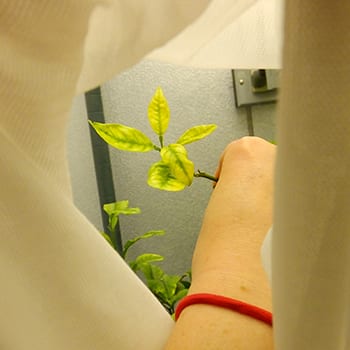
Assistant Professor Michelle Cilia and four members of her lab attended the International Conference for Huanglongbing. They joined hundreds of other researchers in Orlando, Fla. Feb. 9-13, to present their research on this disease.
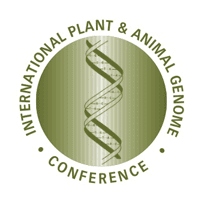
BTI researchers attended, presented and led workshops at 23rd Annual Plant Animal Genome Conference (PAG) 2015 in San Diego.

“Biology is becoming a data science,” said Ruiz. “Biologists need to learn to use bioinformatics tools.”

The Yambase database will allow users to access the yam genome browser hosted by the Iwate Biotechnology Research Center in Japan and will house information about desirable yam characteristics and tools for breeders.
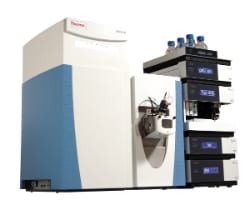

BTI hosts nearly 30 interns every summer, at both the undergraduate and high school level, for 10 and six weeks, respectively, for paid high-level plant science research work in Plant Genome Research, Bioinformatics, and Bioenergy Education.

Professor Georg Jander has seen that, when attacked, plants react at the molecular level. Jander’s dedication—to plant science and people—seems to be contagious.

Dr. Patrick Boyle will be an “Emerging Leader in Science” after four years as a Postdoctoral Scientist in Professor Gregory Martin’s Lab at BTI.

Topics ranged from transitioning between academia and industry, developing tangible products, funding for business incubators, and more.

Georg Jander, Michelle Cilia and Angela Douglas organized Hemiptera (sucking insects) conference held on December 4, 2014.

Visiting scholars Dr. Ignacio Maldonado-Mendoza and Dr. Melina Lopez-Meyer from The National Polytechnic Institute (IPN) in Guasave, Sinaloa in Mexico have chosen to spend their one-year sabbatical at BTI.

“When genomes meet:how RNA silencing and epigenetics can generate extraordinary phenotypes of hybrid plants.”

This study pinpoints regions of the tomato genome where extra DNA has hitchhiked along with desirable DNA; regions breeders can now target for crop improvement.

William Boyce Thompson founded the Boyce Thompson Institute for Plant Research 90 years ago in Yonkers, NY. BTI moved to Cornell campus in 1978, to affiliate with a research university, and remains a private non-profit affiliate of Cornell.

BTI Scientist Successfully Applied Precision Genome Editing in Tomato. In the new system, called CRISPR/Cas9 genome editing, targeted changes are made in the desired region of the genome.